DRC refugees in Uganda sow community ties amid urgent funding shortfall
We the Kakwa bring poverty to ourselves by not working in groups
We want to move ahead from poverty
Poverty is bad
It even causes violence in homes.
In the dusty and remote village of Waju, a group of farmers sing and dance as they celebrate their rice harvest. They are among 5,000 refugees who have fled violence and conflict in the Democratic Republic of the Congo (DRC) and are now living in the Lobule refugee settlement in the northwest of Uganda.
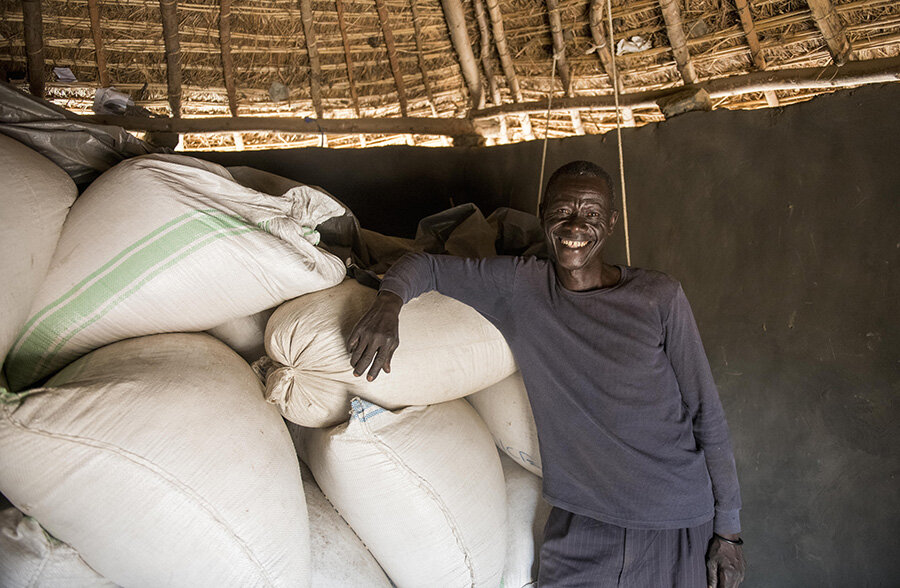
Uganda hosts 1.45 million refugees, the highest number in any African country. The World Food Programme (WFP) supports 1.26 million people, including the 5,000 in Lobule who receive monthly cash transfers.
Scale of acute hunger in DRC 'staggering', warn FAO, WFP
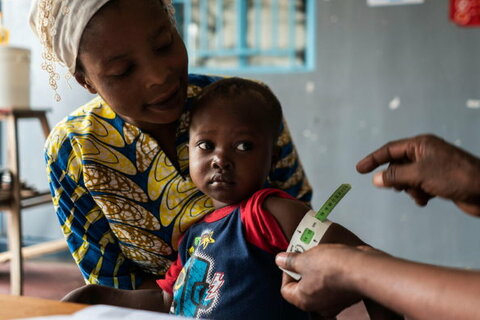
The Jujumbu farmers group has 28 members, including three people from the host community. They are currently celebrating an impressive harvest of 7 tons of rice, one of the largest recorded by farmers in this refugee settlement in recent years.
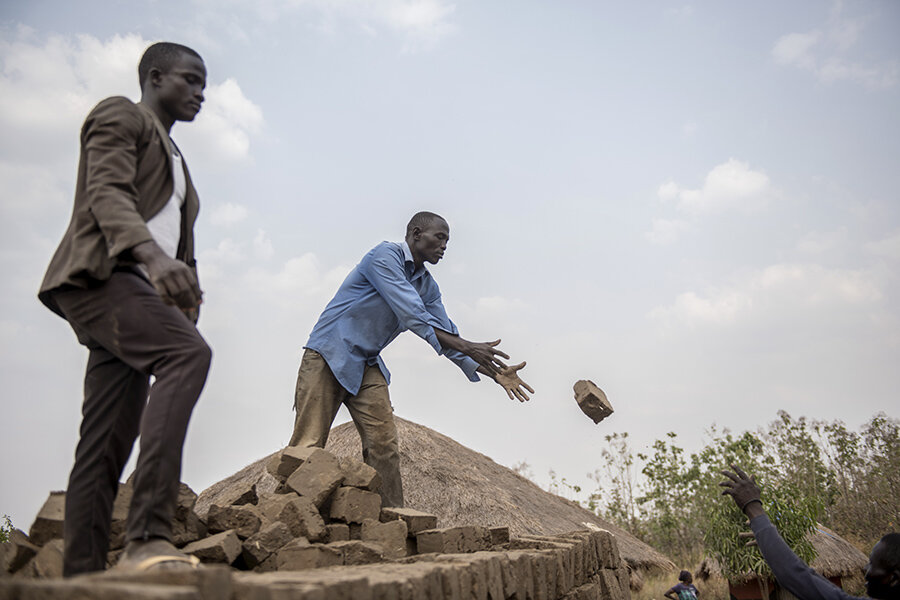
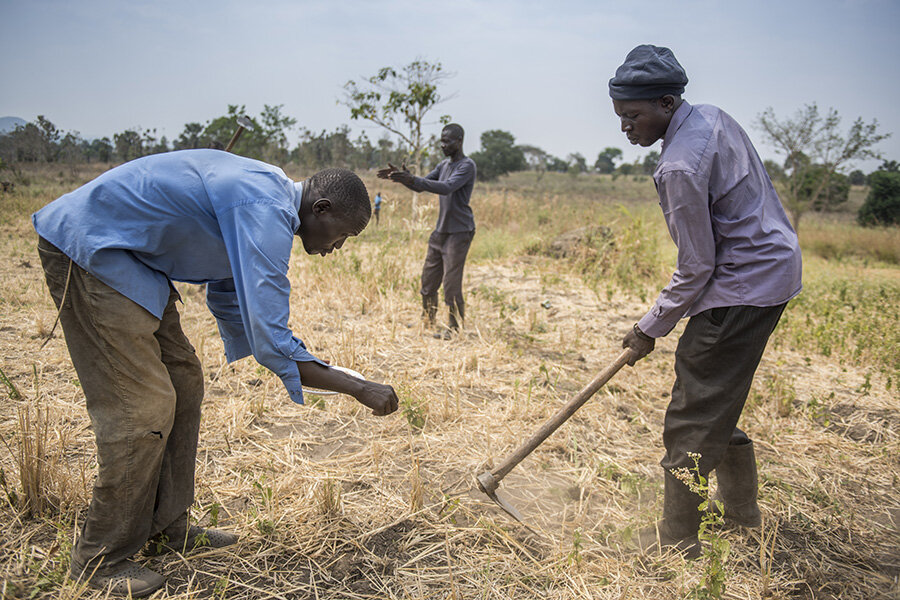
Aisha is one of 22 women in the group. A single mother, she cares for her own four children and her brother’s four children.
Margaret, another member of the group, is a widow who cares for 14 children, five of whom have lost both parents (all but three of the women in the group are widows or single mothers).
Zimbabwe: Mushroom-growing means independence for women farmers
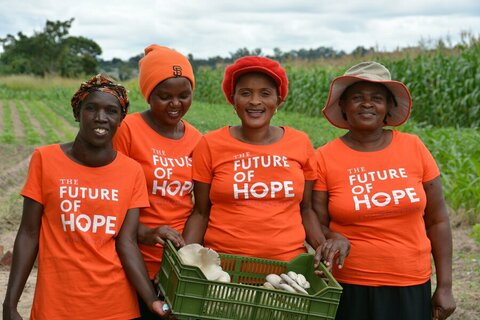
It is rare for women to own land in this part of Uganda. Traditionally, when the male head of a household dies, his land goes to his sons or the closest male relative.
In Uganda, refugees are not allowed to own land. Each refugee family that arrives is given 50 square metres of land to live on and to grow food.
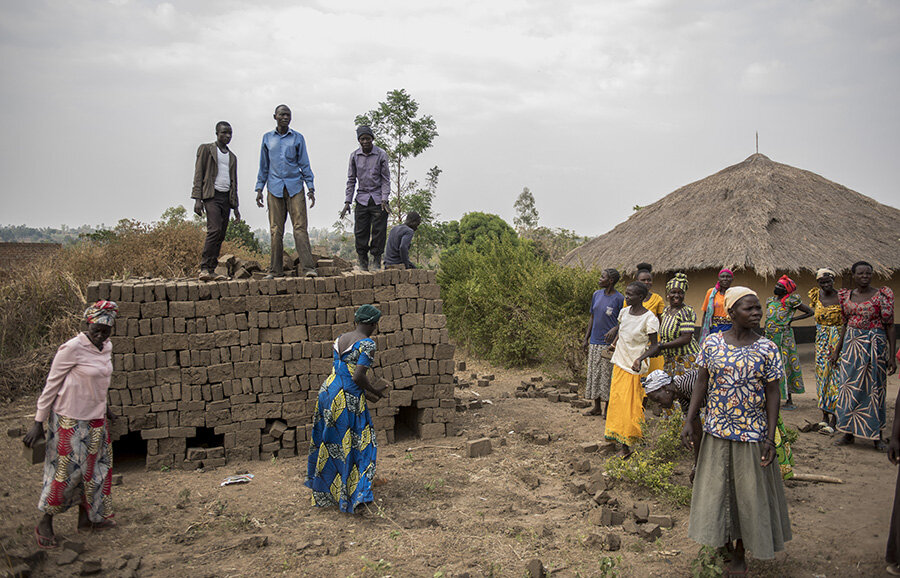
But funding shortfalls are threatening the food security of 3 million refugees across eastern Africa. In Uganda, people are facing 40 percent cuts to their basic survival needs.
“Continual funding cuts means less food for refugees,” says Robert Dekker, who heads WFP’s refugee programme in Uganda. “WFP is working with local administrations to promote partnerships between refugees and host communities, to improve food security and achieve sustainable co-existence.”
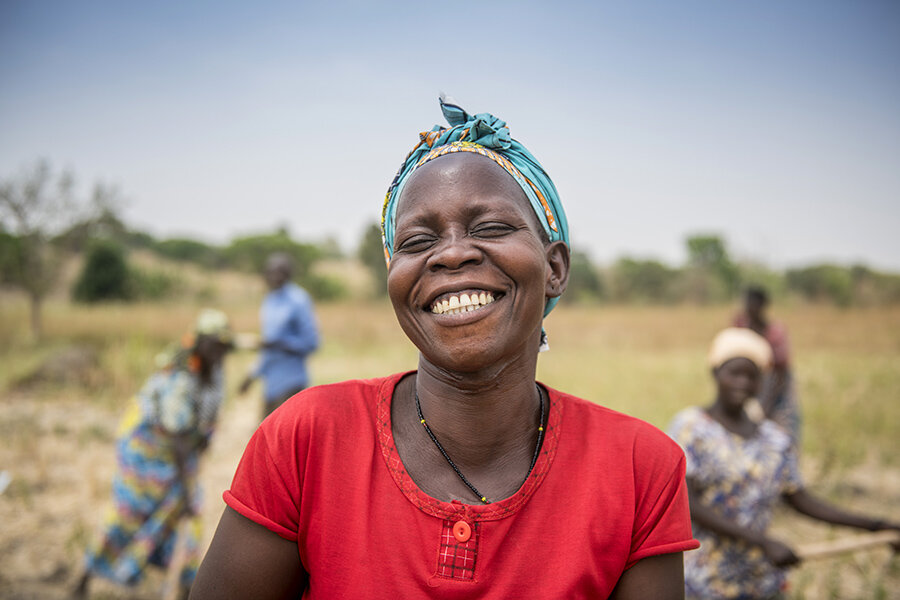
In 2019, the Jujumbu farmers group approached a local landowner with a view to acquiring some land for farming.
“We managed to secure nine acres of land from our brother in the host community,” says Aisha. “WFP then helped us to obtain a tractor which we used to clear the land and begin farming rice.”
In partnership with the Lobule sub-county, WFP is training both refugees and host communities in the dynamics and benefits of group farming, financial literacy, modern farming techniques and reducing post-harvest losses.
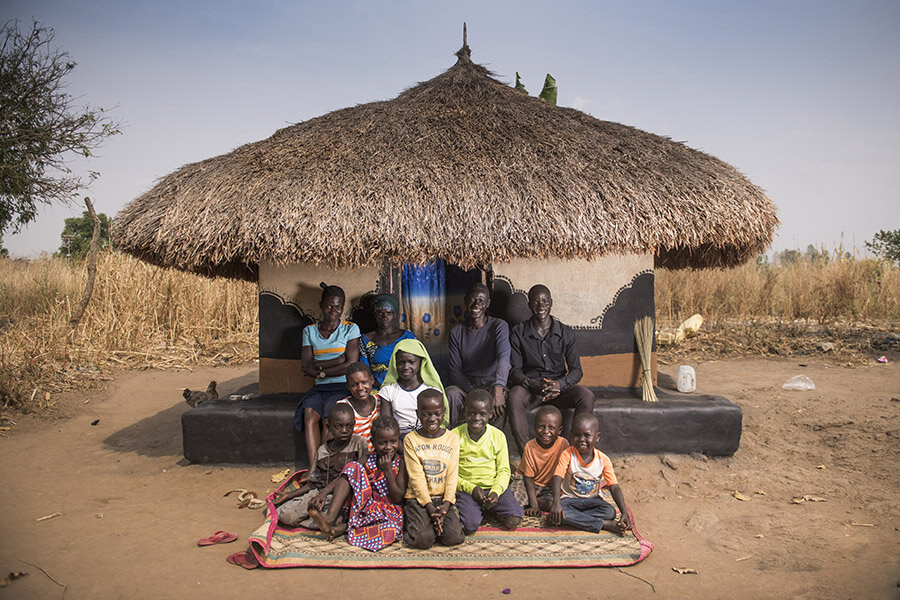
“We had never heard of farming in groups,” says Willy, a member of the collective whose hut is also used as Jujumbu’s headquarters and grain store. “When we came to Uganda, WFP took us to class and taught us all about farming as a group, when to harvest and how to safely store our crops. That is why we called our group Jujumbu, which means ‘learning’ in our native Kakwa language.”
Members are in no hurry to sell their harvest. With the rice safely bagged and efficiently stored in Willy’s hut, they can wait for the right buyer and higher prices.
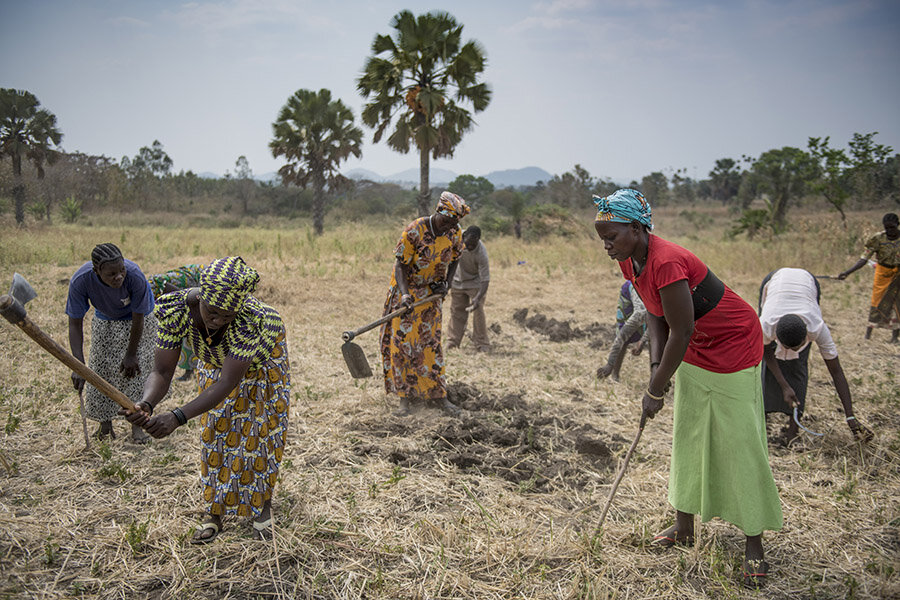
“WFP taught us how to read the markets and how to set prices for our crop,” says Sumbua, a group member and Willy’s wife. “Currently, the market prices are not favourable, and we want to wait for a better one.”
As the members of Jujumbu wait for the right time and price to sell this harvest, they can rely on other income-generating activities, such as a group savings-and-loans scheme and the rearing of sheep and goats for milk and meat.
They are also planning to boost future harvests. Access to an additional 15 acres of land belonging to the host community has already been agreed upon.
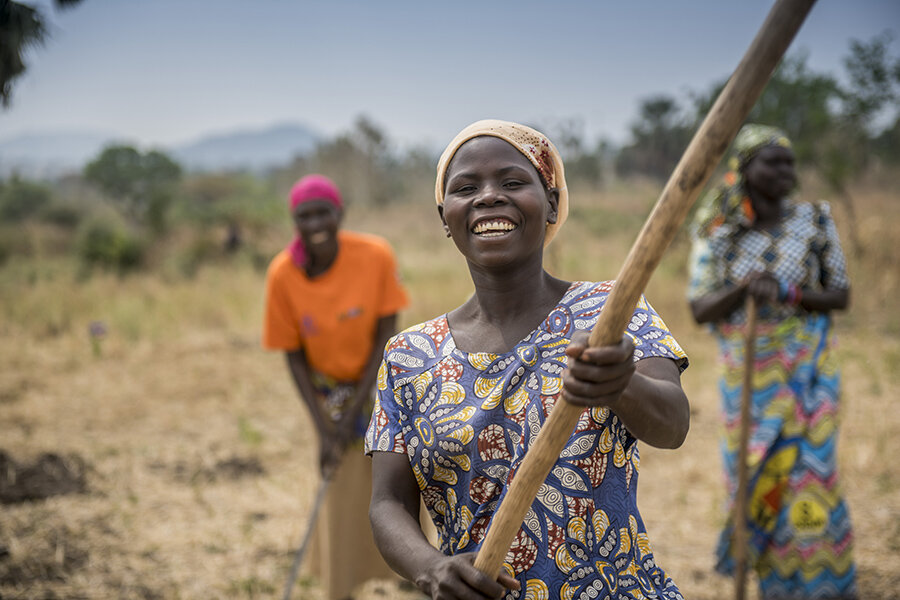
Once cleared and cultivated, the group’s harvests and profits could more than double. The building of a new grain warehouse, which will also serve as a meeting place for members and to welcome potential buyers, is also well under way.
WFP in Uganda urgently needs US$76 million to provide 1.26 million refugees with full rations between March and August 2021.
Learn more about WFP's work in Uganda
